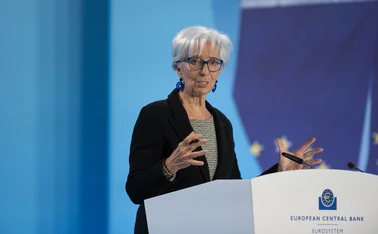
ECB emergency meeting pledges sovereign bond support
Governing council says eurozone will accelerate efforts to create “anti-fragmentation mechanism”

The European Central Bank’s governing council announced it would essentially support under-pressure eurozone sovereign bonds after holding an unscheduled meeting today (June 15).
It also said it would speed up work by the Eurosystem on a new financial mechanism aimed at reducing stresses on some countries’ bonds. Bond markets reacted positively, with the yield on Italian 10-year sovereign debt falling by 0.36 percentage points to 3.86% after the ECB’s announcement.
The governing council’s last
Only users who have a paid subscription or are part of a corporate subscription are able to print or copy content.
To access these options, along with all other subscription benefits, please contact info@centralbanking.com or view our subscription options here: http://subscriptions.centralbanking.com/subscribe
You are currently unable to print this content. Please contact info@centralbanking.com to find out more.
You are currently unable to copy this content. Please contact info@centralbanking.com to find out more.
Copyright Infopro Digital Limited. All rights reserved.
As outlined in our terms and conditions, https://www.infopro-digital.com/terms-and-conditions/subscriptions/ (point 2.4), printing is limited to a single copy.
If you would like to purchase additional rights please email info@centralbanking.com
Copyright Infopro Digital Limited. All rights reserved.
You may share this content using our article tools. As outlined in our terms and conditions, https://www.infopro-digital.com/terms-and-conditions/subscriptions/ (clause 2.4), an Authorised User may only make one copy of the materials for their own personal use. You must also comply with the restrictions in clause 2.5.
If you would like to purchase additional rights please email info@centralbanking.com








